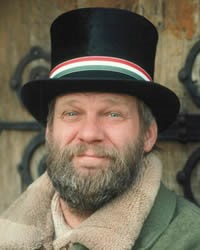Hungarian, Magyar in Hungary

Photo Source:
Masters View / Howard Erickson
|
Send Joshua Project a map of this people group.
|
| People Name: | Hungarian, Magyar |
| Country: | Hungary |
| 10/40 Window: | No |
| Population: | 8,992,000 |
| World Population: | 11,525,200 |
| Primary Language: | Hungarian |
| Primary Religion: | Christianity |
| Christian Adherents: | 87.85 % |
| Evangelicals: | 3.12 % |
| Scripture: | Complete Bible |
| Ministry Resources: | Yes |
| Jesus Film: | Yes |
| Audio Recordings: | Yes |
| People Cluster: | Hungarian |
| Affinity Bloc: | Eurasian Peoples |
| Progress Level: |
|
Introduction / History
The ancestors of the Hungarian people settled in the Carpathian Basin approximately 1000 years ago. 1000 A.D. is recognized as the year when the country was founded.
Similar to other European nations, the Hungarians saw centuries of war and conflict as well as prosperity and peace. Some events stand out, however, and help us understand the people better.
King St. Steven the First accepted Roman Catholicism as the official religion, giving up on the former shamanistic traditions. This led to rebellion among the people and people today look back to these shamanistic "roots" as a reinforcement of their national identity.
Hungary was a kingdom until the 20th century. However the Hungarian royal House Árpád died out and foreign kings started to rule in the country, most notably the Hapsburg. The Hapsburg gained power after Hungary was divided into three regions when the Turks invaded Europe. The Hungarian people rebelled against the foreign rule several times, most notably the freedom fights of 1848-49. After the rebellion was crushed, a few years of severe prosecution followed, but eventually a Compromise was made in 1867 which founded the Austro-Hungarian Empire.
Hungary was still not independent, especially not in its foreign policy. Without much choice Hungary ended up on the loser's side in World War I and faced unfair retribution. Two-thirds of the country was taken away. This ripped families apart and had consequences on the economy but more notably on the Hungarian spirit. This event is a source of radical nationalism and discrimination today (though to a lesser extent).
Hungary was forced to side with Nazi Germany in World War II which ended with Russian occupation and years of Soviet rule, the effect of which is still relevant. Hungary's independence was restored in 1989 when it became a democracy. Hungary joined the European Union in May of 2004.
Where Are they Located?
Hungary is located in the Carpathian Basin, in Central Europe, though it is sometimes considered an Eastern European country. Hungary is land-locked, bordered by Austria, Slovakia, Ukraine, Romania, Serbia, Croatia and Slovenia. The two main rivers of the country are the Danube and Tisza.
What Are Their Lives Like?
Hungary is a developing country that ranks around 50th in GDP per capita in the world. Life is similar to that of other developing or developed countries in Europe. Hungarians have generally good access to food, water and shelter as well as education and health care. However, there are great inequalities within the country. Certain areas (typically the eastern parts) and groups (most notably the Romani) face severe deprivation. Unemployment rates are high and many young people migrate to other countries.
Despite the generally high conditions of living (compared to African, Asian or Eastern European countries) there is a strong sense of discontent, distrust and desperation among the people.
What Are Their Beliefs?
Hungary is considered a Christian country even though most people do not practice their religion. The two most relevant denominations are the Roman Catholic Church and the Hungarian Reformed Church. Eastern philosophies as well as western prosperity and "charismatic" movements are gaining influence.
Hungarian people generally aren't deeply religious. However, concerning moral values they still are more conservative than most western societies.
Thankfully, genuine Christians are to be found throughout the country. They may be members of the Catholic Church, the Reformed Church or smaller denominations like the Baptist Church or other free churches.
Hungary has freedom of religion and conscience as a constitutional right. However, recent changes to laws on legally recognized churches have given smaller, independent congregations substantial trouble.
What Are Their Needs?
With relatively good living conditions (except some depraved areas) the highest need for Hungarians is really the Gospel to give them hope and gratitude.
Prayer Points
Pray for the revival of the churches so that there may be people who go and evangelize.
Pray for wisdom for the leaders of the country.